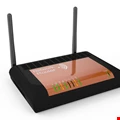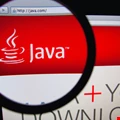Infosecurity News

TVSPY Returns in Force
This particular threat is very dangerous as the attacker will have total control over the affected machine.

PayPal XSS Flaw Opens Door to Attacks
The vulnerability can be used to deliver content or harmful files that enable a wide range of attacks.

26 Mobile Phone Models Contain Pre-Installed Spyware
Phones from Huawei, Lenovo and Xiaomi have pre-installed spyware—even as Android is on track to hit 2 million new malware apps this year.

Baby Monitors Have Grown-up Security Flaws
Critical vulnerabilities in three popular baby monitors, and a slew of other problems in others, allow hackers to spy on the household.

Singtel Closes $770 Million Trustwave Acquisition
Singtel will provide threat intelligence from its Asia Pacific network for TrustWave’s managed security services.

OPM Blows $133m on Post-Breach ID Monitoring
Affected employees still haven’t been informed

US-CERT: Belkin Wi-Fi Router Has a Slew of Flaws
Attacks could run the gamut from arbitrary file injection to man-in-the-middle attacks to cross-site request forgery (CSRF).

Comcast Appoints a CISO
The move indicates that broadband providers may be finally taking cybersecurity for their end users more seriously.

London Makes Top 10 for Safe Web 'Hoods
In contrast, some TLDs, like .zip, are used for the sole purpose of playing host to a large number of scams and spam.

Foreign Spooks Use Hacked US Data to Root Out Spies – Report
OPM, Anthem, Ashley Madison et al provide treasure trove of intelligence

Four Out of Five US Healthcare Firms Have Been Hit by Cyber-Attacks
KPMG study claims industry weaknesses are a national security risk

KeyRaider Steals iPhone Credentials for App Purchases
KeyRaider appears to be behind the largest known Apple account theft caused by malware to date.

Pawn Storm Serves Malware Via Fake EFF Site
Hackers have set up a fake domain for the Electronic Frontier Foundation as part of a targeted malware campaign.

Teenagers Collared for Using Lizard Squad DDoS Tool
Six males, aged between 15 and 18, arrested by NCA

Security Fears Drive Netflix Partner to Infrastructure Upgrade
As the media and entertainment industry becomes an increasing target for attacks, the knock-on effect of the increased cost of appropriate defense can be immense as shown by digital media supply-chain specialist Visual Data Media Services (VDMS)

SANS Institute Identifies Cyber-Defenders of the Future
32 candidates chosen for Cyber Academy boot camp

Phishing Education Can Save Nearly $4m Annually
The appropriate employee training can significantly reduce the financial consequences of phishing in the workplace clams a new research report from Wombat Security Technologies and the Ponemon Institute.

Unmanaged Apple Devices ‘a Liability’ for Corporations
Lack of encryption and weak or shared passwords on Apple devices in the workplace are exposing sensitive corporate and customer information says research from identity protection specialist Centrify Corporation.

Thomson exposes hundreds of passengers’ details
Its web site asserts that its customers are in safe hands, but it may be another case when it comes to customers’ personal details at holiday firm Thomson.

Twitter cuts off access to deleted lawmakers’ texts in 30 more countries
The social network platform may say that it is acting out of best interest but Twitter has been slammed for suspending access in 30 more countries to Diplotwoops and Politwoops.



